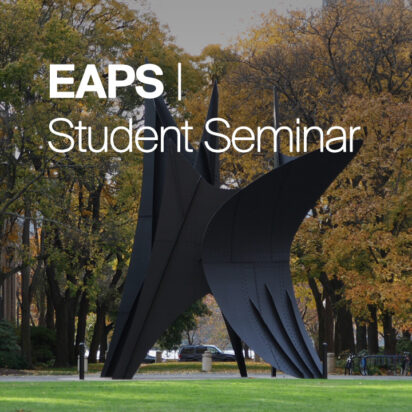
[ESAC Seminar] Justin Finkel
Date: Thursday, February 6, 2025 Time: 12:00 - 1:00pm Location: 54-209 M. Nafi Toksöz Seminar Room | MIT Campus, Cambridge, MA“Towards the best COAST: conditionally optimal advance split time for rare event sampling with perturbed ensembles”
The Earth’s atmosphere generates intermittent extreme weather events of high practical and theoretical interest. Intense heat waves and heavy precipitation, for example, cause disproportionate mortal and financial harm given their small probabilities; but estimating those probabilities poses a formidable computational challenge, because of the need for long simulations to collect an adequate sampling of events. Rare event sampling (RES) tries to shortcut the long waiting periods between events by oversampling the extremes with repeated random perturbations. RES is well-supported by theory in the limits of long-lasting anomalies (e.g., hot or wet seasons) and metastable regime transitions (e.g., AMOC collapse), but suffers from delicate parameter sensitivity when applied to local and transient fluctuations such as extratropical cyclone-carried rainstorms. Experience has shown that the perturbation timing can make or break the efficiency of RES, and the optimal choice varies with the definition of “extreme event” (e.g., spatial location and scale) and the form of perturbations. Here we investigate the behavior of this “optimal advance split time” in a two-layer quasigeostrophic model with a passive tracer: a prototype for midlatitude atmospheric turbulence which instantiates these issues in a controlled environment which affords a balance of computational economy and physical insight. Three major questions guide our investigation: (1) Does an optimal advance split time exist? (2) How does it depend on spatial location, spatial scale, and threshold for defining an event? (3) Are there any practically computable criteria for solving this optimization problem online in a RES setting? We present hopeful but still incomplete answers, which nonetheless clarify aspects of the optimization landscape which can guide future research efforts on optimizing, and sampling, extremes more efficiently.
ESAC Student Seminar Series —
A forum for students and postdocs to share recent research, hone presentation skills, and build community among peers, sponsored by the EAPS Student Advisory Committee. Open to current EAPS graduate and undergraduate students and postdocs. Typically hosted on Thursdays during the semester, including pizza lunch.
Contact: esac.officers@gmail.com
